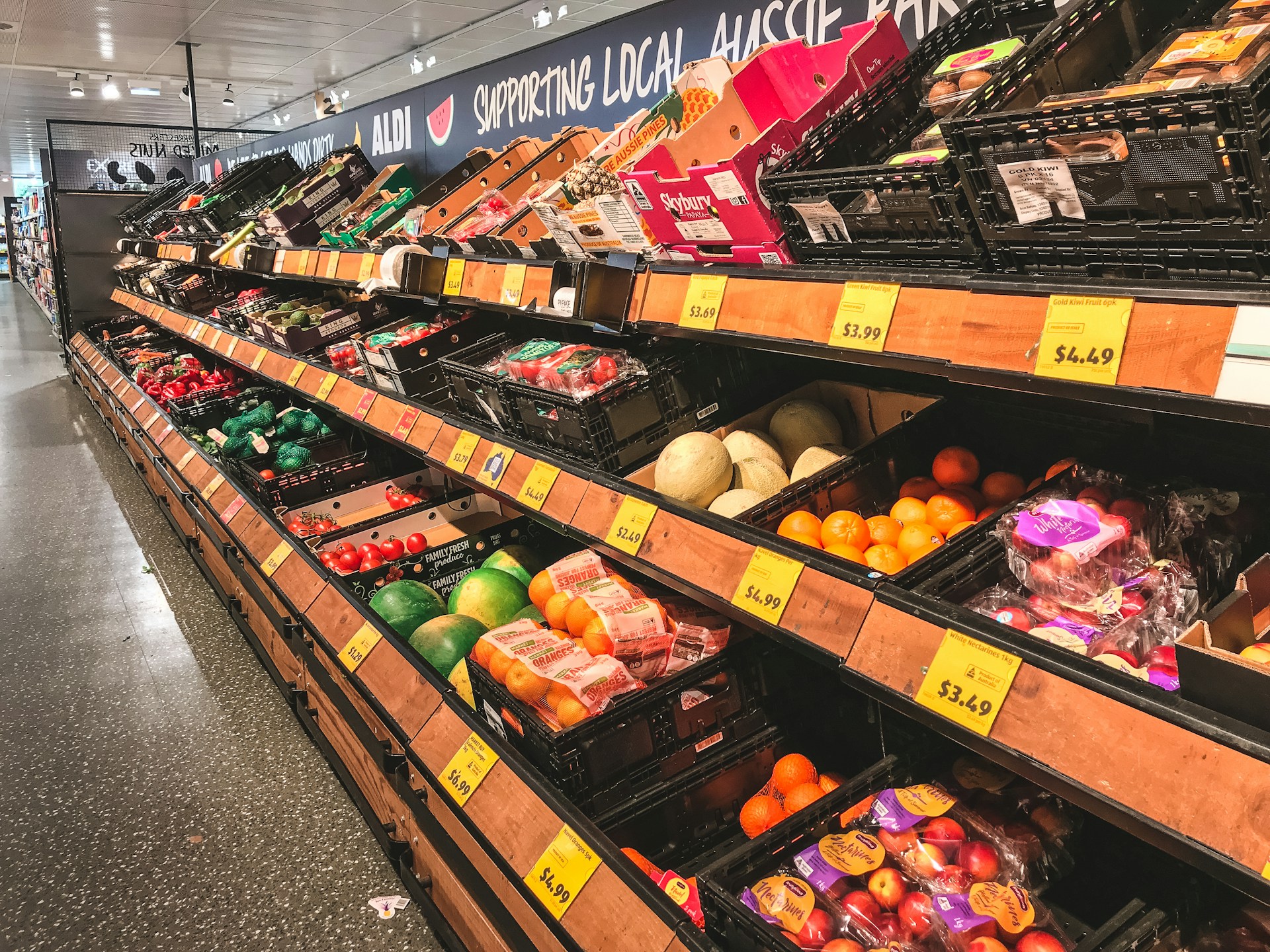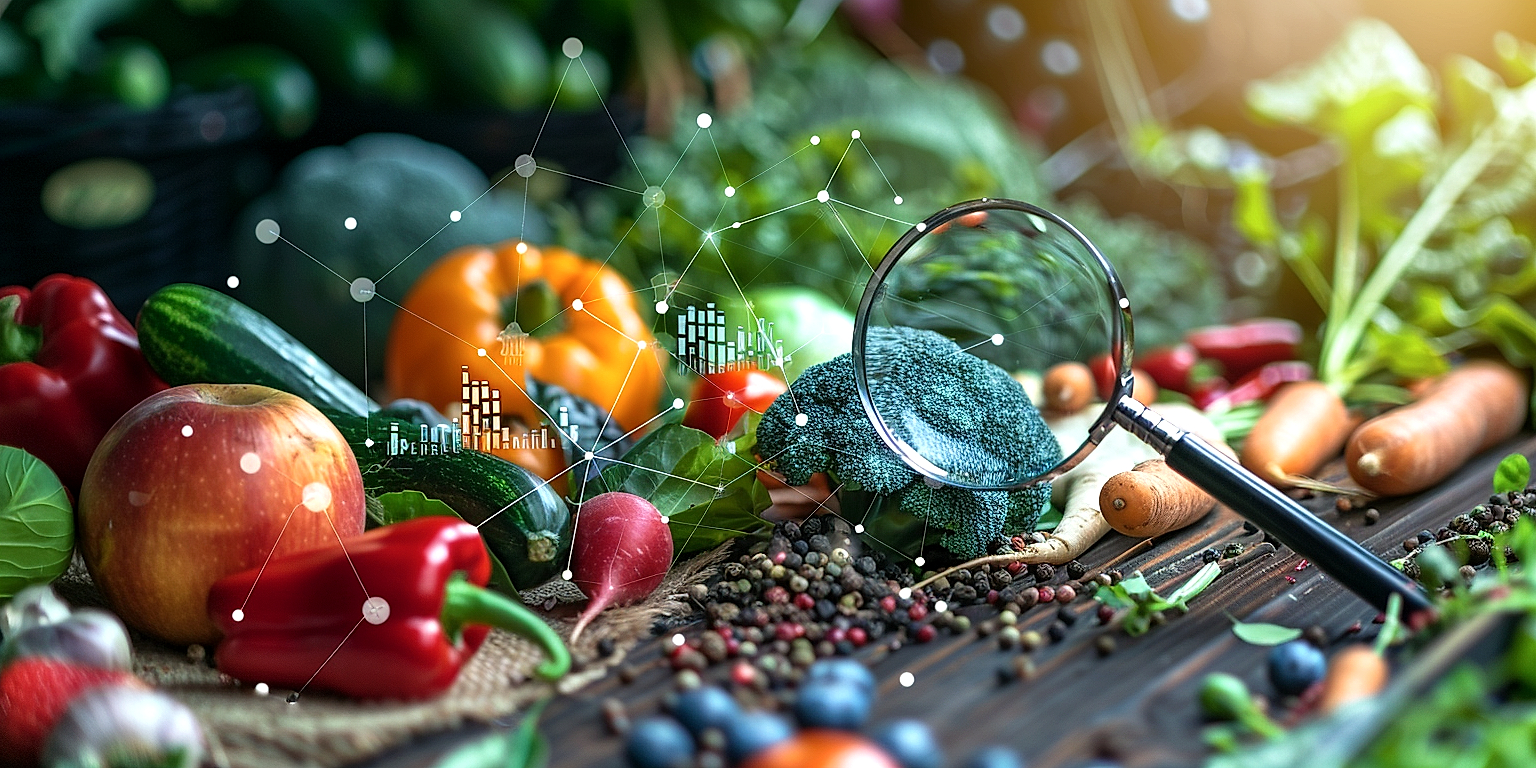As more individuals lean towards healthy eating habits, the market for fresh produce continues to burgeon.
Many consumers not only crave nutritious foods but actively seek them out.
They are even willing to pay a premium for organically grown products.
This presents a ripe opportunity for savvy marketers to tap into this health-conscious market.
However, simply having a healthy product is not enough – its value needs to be effectively communicated.
The task for today is exploring innovative strategies to increase the visibility and appeal of your produce to these increasingly health-minded consumers.
Contents
- Ideas For Marketing Produce To Health-conscious Consumers
- 1. Farm-to-table freshness delivered right to your doorstep
- 2. Organic, sustainable produce for a healthier you
- 3. Make every meal count with antioxidant-packed veggies
- 4. Reset Your Health with Our No-Pesticide Produce
- 5. Enjoy Nutrient-Rich Fruits for a Vibrant Lifestyle
- 6. Fresh, low-calorie produce for your fitness journey
- 7. Minimally-Processed Ingredients for Max Health Benefits
- The Bottom Line
Ideas For Marketing Produce To Health-conscious Consumers
1. Farm-to-table freshness delivered right to your doorstep
Understanding the concept of farm-to-table freshness is key in marketing produce to health-conscious consumers.
The idea is that the shorter the time from the farming of produce to its consumption, the fresher and healthier it is.
This cuts out time spent in transit, storage, and shelving – a process which often adversely affects the nutritional value of fruits and vegetables.
In essence, farm-to-table promotes consuming foods harvested at their prime, in terms of both taste and nutrition.
Consequently, it’s crucial to convey the benefits of receiving farm produce right at customers’ doorsteps.
It not only means that they receive their produce at its peak freshness but also the convenience of having it delivered straight to their doorstep.
By emphasizing the freshness and ease of access, you strongly position your offerings in a marketplace that’s increasingly focused on health and convenience.
Moreover, communicating that you source directly from farms underlines your commitment to preserving nutrients in the produce sold to consumers.
This direct sourcing enables the avoidance of harmful practices such as over-ripening, over-washing, or the use of preservatives to ensure extended shelf life.
Ensuring that your customers know that they are getting the most out of their fruits and vegetables goes a long way in branding and public perception.
This model allows customers to experience farm freshness without leaving their homes, conveniently fitting into busy modern lifestyles.
Importantly, it empowers them to maintain a healthier lifestyle with less hassle.
In an age where consumers increasingly demand transparency, being able to provide concrete reassurances about where and how their food is grown, instills trust.
And trust is one of the most valuable commodities for any business, but particularly within the health-conscious consumer demographic.
Touting the benefits of farm-to-table freshness delivered to a customer’s doorstep is an effective way to appeal to these health-aware individuals who are always looking to optimize their nutrition.
2. Organic, sustainable produce for a healthier you
The farm-to-table movement that emphasizes organic food has seen immense growth in recent years.
Health-conscious consumers, in particular, are increasingly seeking out organic, sustainable produce due to their numerous health benefits and minimal environmental impact.
This presents an ideal opportunity for marketers to tap into this growing demand by promoting their organic produce in a compelling way.
The key to effectively marketing organic produce lies in highlighting its unique selling points – its natural growth, absence of harmful pesticides, and richer nutrient content compared to conventional produce.
Marketers can also emphasize the sustainability aspect of their produce – the fact that it’s grown using practices that protect the ecosystem, conserve biodiversity and promote soil health.
To cater to health-conscious consumers, it’s essential to communicate how organic food can contribute to a healthier lifestyle.
A diet rich in organic food can enhance physical health, boost the immune system, and help prevent chronic diseases.
Therefore, it’s important to convey this in your marketing approach – stressing that your organic produce is not just food, but a choice towards a healthier lifestyle.
Storytelling can be an effective way to market organic produce.
Share the farmer’s story, the farming techniques used, or provide information about the community where the produce is grown.
This can create an emotional connection with consumers and can compel them to choose your organic produce over others.
Furthermore, marketing campaigns should showcase the clear and tangible health benefits that your organic, sustainable produce offer.
Whether it’s higher nutrient content, pesticide-free, or offer unique flavors, the unique qualities of your produce should take center stage in your marketing campaign.
In addition, engaging consumers with interactive content can foster a sense of community around your brand.
Whether it’s recipes using your fresh produce, a farm tour video, or a Q&A session with the farmer – interactive content can enhance the organic and sustainable aspect of your product and provide value to the consumers.
Remember, health-conscious consumers are seeking products that align with their lifestyle values.
Thus, when marketing organic, sustainable produce, your messaging should not only highlight the health benefits but also the values of sustainability, which are in line with the consumers’ values.
3. Make every meal count with antioxidant-packed veggies
In the journey towards achieving optimum health, every meal plays a crucial role, and incorporating antioxidant-packed veggies takes that role to another level.
These vegetables are not just ordinary food items; they are nature’s pharmacists, filled with compounds that can boost your health and wellbeing.
The antioxidants they possess combat free radicals in our bodies, responsible for cellular damage and accelerated aging.
Marketing these antioxidant-powerhouses effectively can influence consumers to adopt a healthier diet routine.
One key strategy can be focusing on the healthbenefits of consuming antioxidant-rich vegetables regularly.
Understanding the importance of antioxidants and presenting it in relatable consumer language can create a substantial impact.
Emphasizing how these vegetables help boost immunity, improve skin health, and reduce the risk of chronic diseases can appeal to health-conscious consumers.
Great inclusion of these vegetables can be brightly-colored ones like bell peppers, spinach, and beets, all of which are loaded with essential health-boosting antioxidants.
Instead of just presenting vegetables as food items, they can be marketed as natural health supplements, making the consumers feel that they are investing in their health with every purchase.
Another convincing approach is to showcase how easy it is to incorporate these vegetables into daily meals.
Providing simple and tasty recipe suggestions can help the consumers visualize including these foods into their diet, which can drive more sales and loyal customers.
Additionally, sharing real-life experiences of people who’ve seen the noticeable benefits after regularly consuming these antioxidant-packed veggies can be effective.
These testimonials can provide the assurance and motivation needed for others to give it a try.
It’s also essential to emphasize the freshness and quality of the produce, reassuring consumers that they’re getting the most nutritional bang for their buck.
Packaging these vegetables appealingly and conveniently can also play a key role in attracting health-conscious consumers.
Produce boxes with a variety of antioxidant-rich veggies can not only provide value for the money but also convenience and variety to the consumers.
4. Reset Your Health with Our No-Pesticide Produce
Many people these days are increasingly wary of the long-term effects of consuming foods laden with pesticides.
Switching to produce that’s entirely free of pesticides is one way to reset your health. The benefits, after all, are numerous and hard to ignore.
First, consuming no-pesticide produce reduces the toxic burden on your body.
By eliminating exposure to harmful substances often found in commercially farmed produce, you give your body the chance to heal and regenerate more efficiently.
This is especially significant for those with chronic illnesses or those looking to protect their long-term health.
Second, no-pesticide produce can quite literally taste better.
Many people find that organic fruits and vegetables have a richer, more vibrant flavor compared to conventionally-grown counterparts.
This could make meals not only healthier, but also more enjoyable.
The third benefit of no-pesticide produce is its positive impact on the environment.
Non-organic farming methods often use synthetic pesticides and fertilizers that can contaminate water, soil, and air.
By choosing no-pesticide produce, you’re contributing to the betterment of our planet.
Despite these advantages, though, it’s important to recognize the challenges.
No-pesticide produce may be more expensive to buy, and depending on where you live, it could be harder to access.
An effective marketing strategy should underscore the numerous health benefits while also addressing potential obstacles.
It’s not just about selling produce – it’s about educating consumers and inspiring them to make healthier choices for themselves and the planet.
Everyone deserves access to fresh, no-pesticide produce. Let’s make that a reality.
5. Enjoy Nutrient-Rich Fruits for a Vibrant Lifestyle
When marketing produce to health-conscious consumers, it’s essential to highlight the nutritional content of the fruits you offer.
High-quality, nutrient-rich fruits can play an integral part in promoting a vibrant lifestyle.
By presenting the various vitamins, minerals, and other beneficial compounds present in fruits, you are appealing directly to the health-focused consumer market.
Details about the nutrient content of each fruit can educate and motivate consumers to make healthier choices.
Moreover, sharing information about how these nutrients affect the body and contribute to overall health could further pique interest and encourage sales.
Through clearly emphasizing the health benefits of the nutrient-rich fruits available, businesses can boost their credibility, foster trust, and build a strong customer base.
It’s worthwhile to share a present the health benefits of these nutrients in an easy-to-understand manner.
Fruits filled with antioxidants, fiber, and essential vitamins and minerals can aid in weight management, improve digestion, and help maintain longer and more energetic lives.
Position your produce as a natural and effective way to fill nutrient gaps in the consumers’ diets.
Another significant factor to consider when marketing produce is the importance of vibrant, appealing visuals.
While written content regarding the nutritional value of fruits is vital, high-quality images of the produce can also significantly influence the purchasing decisions of health-conscious consumers.
Visual representation of fresh, juicy, and colorful fruits can invoke a sense of well-being, effectively drawing consumers in.
Promote a holistic approach to health by positioning your nutrient-rich fruits as a key component in living a balanced, vibrant lifestyle.
Your marketing should aim to educate, inspire, and encourage healthier eating habits.
Emphasizing that enjoying nutrient-rich fruits can lead to a more vibrant lifestyle could be a powerful motivator for health-conscious consumers.
Your marketing approach should be a perfect blend of education, inspiration, and the promotion of vibrant, healthy living.
6. Fresh, low-calorie produce for your fitness journey
Fresh, low-calorie produce is a vital rung on the ladder of your fitness journey. Consuming such foods not only aids weight loss but also fuels your body with essential nutrients it needs to function optimally.
One of the easiest ways to integrate fresh, low-calorie produce into your diet is to include a variety of fruits and vegetables in every meal. This habit has the added advantage of ensuring you get a wide spectrum of vitamins and minerals in your diet.
Consumers looking to adopt a healthier eating pattern should pay special attention to the frequency of their meals. Regular, balanced meals packed with fresh, low-calorie produce help keep your metabolism functioning smoothly.
Regular, balanced meals packed with fresh, low-calorie produce help keep your metabolism functioning smoothly.
The color and crunch of fresh produce also contribute to a more enjoyable eating experience. Besides the health benefits, vibrant and colorful foods also make meals look more appealing and satisfying.
Fruits like berries, apples, and watermelons, besides being low in calories, are also rich in water content. Consuming such foods can help keep you hydrated and feeling full for longer periods of time.
Vegetables such as spinach, kale, and Swiss chard, are not only low in calories but they also serve as excellent sources of dietary fiber. Including these in your meals can help keep your digestive system healthy and maintain your blood sugar levels.
Your fitness journey is not just about what you eat but also about how much you eat. Filling your plate with a diversity of fresh, low-calorie produce can help keep portion sizes in check.
Many people often make the mistake of assuming that all fresh produce is low in calories. But remember fruits like avocados and bananas, although loaded with nutrients, are also high in calories.
Buying locally grown and in-season produce can not only guarantee the freshest and tastiest fruits and veggies, but it’s also a great way to support local farmers and sustainable agriculture practices.
The key to a successful fitness journey is persistence and consistency. Stick to your healthy eating habits, even if you don’t see immediate results.
When planning your meals, you don’t have to stick to the same kind of produce all the time. A wealth of different fruits and veggies means lots of flavors to explore and enjoy.
Nutrient-dense, low-calorie produce can be found in vegetables like broccoli, bell peppers, and Brussels sprouts. These powerhouse foods pack in a lot of nutritional benefits with minimal calories.
Keep in mind that some cooking methods, like boiling or baking, can preserve the nutritional value of your fresh produce, while others, like frying, may add unnecessary calories.
The marketing of fresh, low-calorie produce, when done effectively, can encourage healthy eating habits and support individuals in their pursuit of a healthier lifestyle.
7. Minimally-Processed Ingredients for Max Health Benefits
One of the key selling points health-conscious consumers look for is minimally-processed ingredients.
In today’s market, there’s a growing demand for products that are as close to their natural state as possible.
Consumers understand that minimally processed foods retain more nutritional value compared to heavily processed options.
When marketing produce, emphasize the lack of processing as a significant health advantage.
Highlight the fact that less processed foods typically contain fewer additives and preservatives, substances often associated with potential health risks.
Produce is generally low in salt, sugar, and unhealthy fats, staple ingredients in processed foods that are linked to various health problems, like hypertension, diabetes, and obesity.
Fresh fruits and vegetables, for instance, offer a palate of flavors that do not require additional enhancing substances, making them ideal for the
health-savvy consumer.
Your marketing strategies should focus on educating consumers about the health advantages associated with minimally processed ingredients.
Emphasize how staying closer to nature and away from the factory contributes to long-term wellbeing, echoing the old adage that “an apple a day keeps the doctor away”.
Illustrate how fresh, minimally processed produce can add more than just color and texture to meals — they also load dishes with vital nutrients and potentially disease-fighting substances.
Echo their clean eating goals by highlighting how your products enhance a balanced, nutrient-rich diet.
Remind your audience that a diet high in fruits and vegetables can aid in weight management and reducing the risk of chronic diseases.
The simplicity of your produce — its lack of processing and artificial ingredients — is its strength, and this should be the centerpiece of your marketing efforts towards health-conscious consumers.
By accentuating the value of minimally processed ingredients in your marketing, you’re targeting consumers who prioritize their health and appreciate knowing what’s going into their bodies.
Understandably, these consumers are not just buying food — they are investing in their health, and your products should promise and deliver exactly that, a maximum health benefit.
The Bottom Line
Harnessing the power of farm-to-table freshness, we offer you the opportunity to revolutionize your health and lifestyle.
By incorporating our organically-grown, sustainable produce into your diet, you can reap a host of health benefits – from antibodies found in our antioxidant-packed veggies to the nutrient-richness of our various fruits.
Our meticulously grown produce is a testament to our commitment to your health, free from the detrimental effects of pesticides.
Make your fitness journey more rewarding with our fresh, low-calorie fruits and vegetables, and savor the pure taste of minimally-processed ingredients with maximum health benefits.
Your health is our priority, and we promise to deliver nothing less than the best quality produce right to your doorstep.




